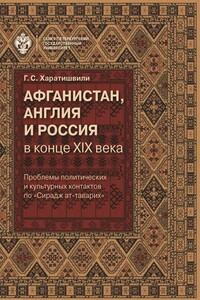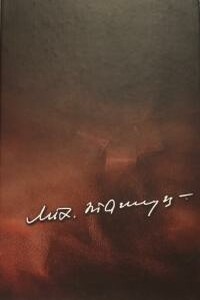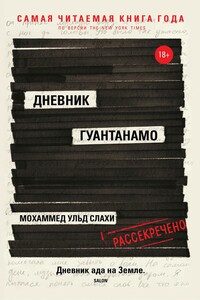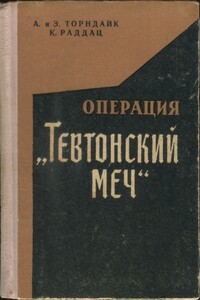The Run of His Life: The People v. O. J. Simpson - [17]
The criminalist, Dennis Fung, arrived at Rockingham at 7:10 A.M. and did a quick test of the red stain on the exterior of the Bronco. It was only a presumptive test, and so not 100 percent definitive, but it suggested the presence of human blood. Fuhrman returned from Nicole’s condominium a few moments later. He said the glove at Bundy was for a left hand, and told Vannatter that it did indeed look like a match for the right glove found behind Kaelin’s room.
That’s it, said Vannatter. We need to get a search warrant for this place. Vannatter left for the West Los Angeles station to write one up. Once there, he decided to touch base with deputy district attorney Marcia Clark. Vannatter and Clark had recently completed work together on a murder case that focused on blood and other trace evidence, and the detective wanted a second opinion on the facts he had gathered so far in this case. Checking with a prosecutor made sense for a detective; lawyers usually had better antennae than cops for determining whether a judge would grant a search warrant. For her part, Clark was only too pleased to receive Vannatter’s call at home shortly after eight on that Monday morning. A workaholic, and something of a crime junkie, she relished the details of criminal investigations as much as courtroom prosecutions.
Vannatter told Clark about the apparently matching gloves and then summarized the trail of blood-which wound from the left side of the shoe prints at Bundy, to the Bronco on Rockingham, to the driveway, and then to the foyer of Simpson’s home. Clark listened to Vannatter dispassionately and was struck only by one thing: the fancy neighborhood where the murders had taken place.
“Marcia,” Vannatter said. “It’s O.J. Simpson.”
“Who’s that?” Clark replied.
“You know, the football player, actor, Naked Gun.”
Marcia Clark had never followed sports. She went to the movies only once in a while. Just about her only connection to mass culture was when she listened to her Doors albums. For relaxation, she read novels about serial murderers.
“Sorry,” Clark said. “Never heard of him.”
On hearing the facts of the case, Clark thought there was more than enough evidence to get a search warrant-probably enough to arrest Simpson himself. But Vannatter said they should take it one step at a time, and he hung up. Then he began drafting the affidavit he would be required to submit in order to get a search warrant.
In his affidavit, Vannatter said he had been a police officer for over twenty-five years and a detective for fifteen. He wrote that after examining the crime scene, he and his partner had traveled to 360 North Rockingham to notify O.J. Simpson of the murder of his ex-wife. When they examined the Ford Bronco, Vannatter went on, they “noticed what appeared to be human blood, later confirmed by Scientific Investigation personnel to be human blood on the driver’s door handle of the vehicle.” Vannatter continued, “It was determined by interviews of Simpson’s daughter and a friend Brian Kaelin [that Simpson] had left on an unexpected flight to Chicago during the early morning hours of June 13, 1994, and was last seen at the residence at approximately 2300 hours, June 12, 1994.”
A magistrate signed the warrant in the late morning, and Vannatter returned to the Rockingham estate at just about noon on Monday, June 13, which was, as it happened, almost the same time O.J. Simpson arrived home from his abbreviated trip to Chicago.
Simpson’s friends often used the same expression to describe him: “He loved being O.J.” That was, in many respects, his occupation-being O.J. By 1994, he was long retired from his days of football glory. He had modest visibility as a sports broadcaster and some minor success as an actor in occasional self-mocking roles in the Naked Gun movies. He judged beauty contests. He shilled for Hertz. He pitched in an infomercial for an arthritis cure. At the time of his arrest for murder, Simpson had only a vaporous, peculiarly American kind of renown: He was famous for being O.J. (When Nicole Brown Simpson called 911 on October 25, 1993, and complained that her ex-husband was “going nuts” outside her home, she assumed that his name would be immediately recognizable; but having heard it, the dispatcher asked, “Is he the sportscaster or whatever?”)
The event Simpson planned to attend in Chicago on Monday, June 13, demonstrated how he made his living as a “sportscaster or whatever.” He was due that day at the Mission Hills Country Club, in suburban Northbrook, to play in the Hertz Invitational, the rental car company’s annual tournament for its top corporate customers in the neighboring thirteen-state area. In 1994, playing golf was pretty much all O.J. Simpson did for Hertz, though he did a lot of it. (The previous week, he had played for Hertz in Virginia.) It had been a different story when he first signed with Hertz in the 1970s, when he was still playing football. At that time Simpson starred in some of the best-known television advertisements of the era, which featured the handsome athlete leaping over furniture in airports to make a swift connection to his rental car. “Go, O.J., go!,” a grandmotherly matron shouted after him. At the time Hertz even tied its corporate slogan to its celebrity spokesman, touting itself as “the superstar in rent-a-car.” But a decade and a half later, the company paid him about half a million dollars a year to be, as his friends put it, “the house golfer for Hertz.”

Книга представляет собой исследование англо-афганских и русско-афганских отношений в конце XIX в. по афганскому источнику «Сирадж ат-таварих» – труду официального историографа Файз Мухаммада Катиба, написанному по распоряжению Хабибуллахана, эмира Афганистана в 1901–1919 гг. К исследованию привлекаются другие многочисленные исторические источники на русском, английском, французском и персидском языках. Книга адресована исследователям, научным и практическим работникам, занимающимся проблемами политических и культурных связей Афганистана с Англией и Россией в Новое время.

"Великий человек, яркая личность, Божий дар Беларуси" - так Михаила Николаевича Пташука называли еще при жизни наши современники и с любовью отмечали его уникальный вклад в развитие отечественного, российского и мирового кинематографа. Вклад, требующий пристального внимания и изучения. "И плач, и слёзы..." - автобиографическая повесть художника.

Тюрьма в Гуантанамо — самое охраняемое место на Земле. Это лагерь для лиц, обвиняемых властями США в различных тяжких преступлениях, в частности в терроризме, ведении войны на стороне противника. Тюрьма в Гуантанамо отличается от обычной тюрьмы особыми условиями содержания. Все заключенные находятся в одиночных камерах, а самих заключенных — не более 50 человек. Тюрьму охраняют 2000 военных. В прошлом тюрьма в Гуантанамо была настоящей лабораторией пыток; в ней применялись пытки музыкой, холодом, водой и лишением сна.

В книге рассказывается история главного героя, который сталкивается с различными проблемами и препятствиями на протяжении всего своего путешествия. По пути он встречает множество второстепенных персонажей, которые играют важные роли в истории. Благодаря опыту главного героя книга исследует такие темы, как любовь, потеря, надежда и стойкость. По мере того, как главный герой преодолевает свои трудности, он усваивает ценные уроки жизни и растет как личность.

Брошюра написана известными кинорежиссерами, лауреатами Национальной премии ГДР супругами Торндайк и берлинским публицистом Карлом Раддацом на основе подлинных архивных материалов, по которым был поставлен прошедший с большим успехом во всем мире документальный фильм «Операция «Тевтонский меч».В брошюре, выпущенной издательством Министерства национальной обороны Германской Демократической Республики в 1959 году, разоблачается грязная карьера агента гитлеровской военной разведки, провокатора Ганса Шпейделя, впоследствии генерал-лейтенанта немецко-фашистской армии, ныне являющегося одним из руководителей западногерманского бундесвера и командующим сухопутными силами НАТО в центральной зоне Европы.Книга рассчитана на широкий круг читателей.

Книга Стюарта Джеффриса (р. 1962) представляет собой попытку написать панорамную историю Франкфуртской школы.Институт социальных исследований во Франкфурте, основанный между двумя мировыми войнами, во многом определил не только содержание современных социальных и гуманитарных наук, но и облик нынешних западных университетов, социальных движений и политических дискурсов. Такие понятия как «отчуждение», «одномерное общество» и «критическая теория» наряду с фамилиями Беньямина, Адорно и Маркузе уже давно являются достоянием не только истории идей, но и популярной культуры.